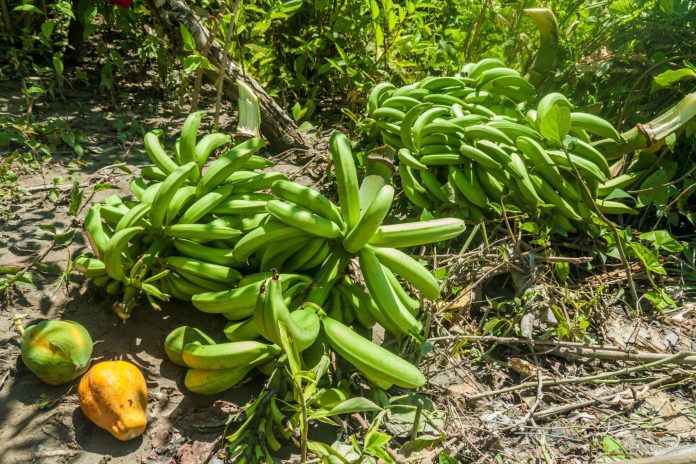Food and agricultural firms are increasing investments to integrate internet of things solutions in some of their processes to cut down costs and improve quality and quantity of harvests in a move to increase production and competitiveness.
Red Tecnoparque Colombia is part of the technical innovative program Sennova from SENA Regional Risaralda, the Colombian National Service for Learning, which is looking to accelerate the development of research, development and innovation projects in the country. To improve productivity, the organization has deployed a wireless sensors network with Libelium technology to monitor plantain crops in the Lembo area of the Santa Rosa de Cabal region.
Plantain crops have special significance for Colombian economy as they represent almost 10% of the agricultural production value and annual production is estimated to be around 3 million tons.
Crop flood, decrease of oxygen in the soil, high humidity, low temperatures and low luminosity cause a lower plant development and a bigger predisposition to be affected by plagues and diseases. During winter, an increase of plagues and diseases makes pesticides vigilance and control vital for producers.
Red Tecnoparque Colombia selected Spanish firm Libelium’s Waspmote Plug & Sense Sensor Platform to develop a Smart Farming project with remote sensors. Libelium’s sensors allow producers to monitor key parameters including humidity, temperature, soil moisture, soil temperature, trunk diameter, fruit diameter, pluviometer and solar radiation.
Through the monitoring of these parameters, Redcom Tecnoparque can remotely supervise ambient and agronomic variations to investigate new banana varieties. This solution also lets them know harvesting projections and optimize water usage to prevent plagues and diseases, reduce fertilizers consumption and to classify soils.
Libelium’s Waspmote Plug & Sense platform communicates with a Meshlium Gateway through the 802.15.4 protocols, while data is sent to the cloud via 2G and 3G cellular connections. The information is visualized in its own cloud-based application for the project, with the platform accessible through a computer or mobile application.
“This project will allow us to obtain knowledge from the crops and also to develop and deploy technology for agriculture sector as a first step for future researches. Our aim is to upgrade and promote innovation and competitiveness to all the processes related to environmental and agriculture sectors,” said Jerry Giovanny Colorado Cano, consultant at Red Tecnoparque.
Libelium said it covers hundreds of IoT applications with its platform, including sensors for smart water, smart environment, smart cities, smart agriculture and smart parking.

